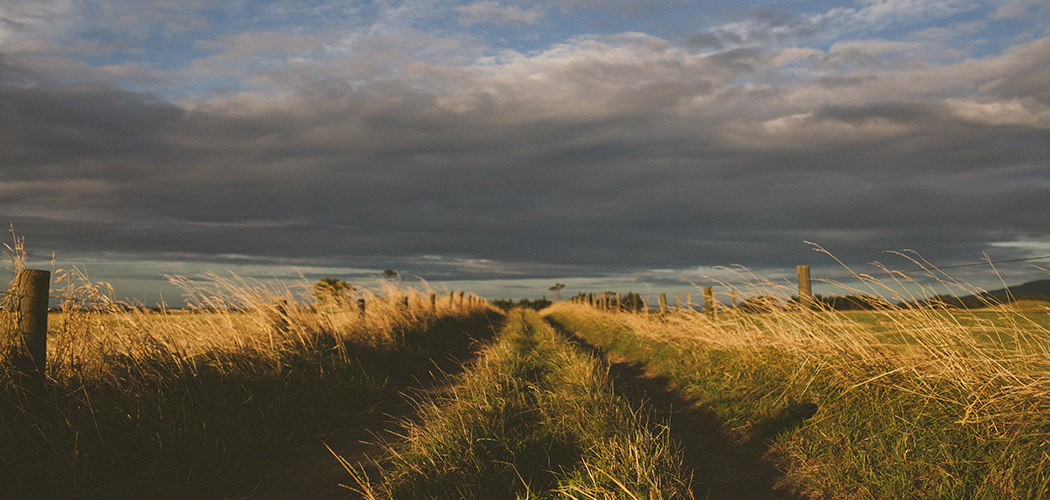[title subtitle=”fiction: Marla Cantrell”][/title]
I can see Ira from our bedroom window. He is out in the corn patch a few yards away, and it’s past midnight. He gets off work at the feed mill at ten, and it takes him twenty-five minutes to drive to the house. He didn’t come straight home. That much I know. If I ask, he’ll say “overtime,” but his check won’t show an extra dime, so I won’t say a word. He stands beside his silver pickup, a yellow moon above him, and he smokes a cigarette that glows orange as he inhales, over and over, until the thing is gone.
He is moving now, to the three rain barrels in the back of the truck. This is something Ira loves, gathering rain that would otherwise soak through the red clay earth, would pool around the scooped out place at the foot of our front steps where we’ve worn it down with our comings and goings. Ira is not much taller than me, maybe five eight, five nine, and he struggles with the first barrel, working it from side to side, easing it down on two boards that lean between the tailgate and the ground. He loses his footing on the new grass, and the barrel thumps, tumps over, spills everywhere.
Ira is cussing now, loud, and he scrambles, grabbing the tailgate, lifting himself from the mud he’s made. I step back from the window — no need for him to see me there — and crawl back into bed and wait for him to come to me, but he never does.
I don’t know how other marriages end, but ours is ending in a cornfield that I’m not even in. Six months ago, shoot, even four months ago, I would have been out the door the second I saw his truck pull up. I would have wrangled the rain barrels with him, shimmied up on the tailgate, pushed from behind while Ira wrapped his arms around their round bodies. If he had fallen we both would have laughed. We would have told the story later, to the waitress at The Roasted Ear where we go every Thursday for chicken pot pie, a habit we can’t seem to break even though we don’t have one good word to say to each other anymore.
The next morning he calls. “Had to pull an extra shift,” he says. “Near about fell asleep in my truck on the way home, so I pulled over and slept.” I don’t say a word, don’t call him out on this lie, so he says, “You still there?”
“Still here,” I say.
“Probably just gonna get some breakfast at Mickey Dee’s,” he says, and I don’t answer. In the silence between us I hear traffic, a distant horn, Ira’s radio blasting Big Country 107.3.
“Well,” he says finally, and then nothing else.
“Goodbye,” I say.
Ira breathes heavy, sighs, hangs up.
Falling out of love makes you sick, and so I am, all morning. I go through Ira’s dresser. I look inside his shed, for love letters, for pictures of another woman, for anything that would explain how the man who promised me forever is backing out after sixteen years.
There is nothing there that shouldn’t be. I do find one photo. It is of his sister, Evelyn, when she was in first grade. She was not a remarkable child. She is not a remarkable woman.
Still, that is where he goes, to Evelyn’s, when he decides to leave. He doesn’t take so much as an extra undershirt. And when he calls, he says, “I don’t know how to come home again.”
“You get in your truck,” I say. “You put it in drive. You follow the road that leads you back.”
“That road is gone,” he says, and his voice catches.
That entire week is hell. I wander at night. I walk down our street, and then down Cherry, and over to Wire Hill. I look at people’s yards, see bicycles leaned against houses, unusable cars up on cinderblocks, truck tires painted blue, laid flat on the ground with petunias planted where the wheel ought to be.
The only place I’m any good is at work. I answer the phones. “Good morning,” I say. “Cowan’s Construction.” As soon as June came around, business picked up, and now we have six jobs going, and all the sub-contractors are calling, looking for their checks, or putting in change orders, sometimes just calling to complain about the heat.
On Monday I can’t get out of bed. I consider calling Ira, but the thought makes my stomach hurt. Instead, I call my boss, and he asks if I need anything and I cry like I’m six, because there’s so much I need that I couldn’t begin to tell him.
By nine, I will myself to get up. I shower, shave my legs, wash my hair. The sun is gigantic and the wind is blowing. I sit on the porch and look at Ira’s corn. It is not doing any better than I am.
My swimsuit is on the clothesline, where it’s been since before this trouble began. I take it down. And then I go inside and put it on. By ten I’m in my car. I stop at the store and get chips and cokes and sunscreen and a raft that’s bright pink. I head to Bluff Hole on the Mulberry River where I used to swim when I was a kid.
The water is what my daddy calls creek-water green. The limestone bluffs shimmer in the morning light. A group of teens is here, and one of the boys calls out, “Looking fine like sweet cherry wine.” I look around to see who he’s talking to, and then I realize it’s me. I laugh, feel my face go red, shake my head.
The wind catches in the treetops, whooshes and then dies. Clouds roll across the sky, birds call out, traffic thumps across the nearby bridge. I lie on my raft and listen to it all.
The teens are joshing on the bank, pushing each other in. They’ve tied a rope to an oak tree, and the boy who called out to me is hanging onto it, about to swing out and jump. When he lands, he surfaces quickly, shaking his head like a wet dog, the water shimmying off his long blond hair.
He causes waves that make my raft rise and fall. I slide off, feel the chill of the water, and start to swim. It’s been too long since I’ve spent a day like this. I leave the raft behind. I let it go. I can feel my muscles working, the fine way the water moves around me.
I am out of breath by the time I get to shore. The blond guy has rescued my raft, has brought it to me like a trophy. I point to the brooding dark-haired girl who is scowling at us, and I say, “Give it to your girlfriend,” and I turn to wave to her, smile, wave again.
At home, the phone’s message light is on. I hit ‘play’ and hear Ira’s voice. “Are you there?” he asks, and then he asks again.
That night, when the neighborhood settles in, I go to Ira’s shed. I take his dirt bike trophy he won when we were sixteen. I grab his camping shovel. I bury the trophy three streets over, in the soft dirt beneath an elm that’s taller than the abandoned two-story house that stands behind it. It feels good to bury something Ira loves. The next night, I take his pearl-handled pocketknife and dig a spot in the corn patch with my hands. It slips easily beneath the crumbling earth.
In the morning the phone rings. I let it go. Ira’s message is almost the same. “Are you there?” he asks. He says something else I can’t make out and then he adds, “Rayanne, please pick up the phone.”
At the grocery store I buy kettle corn and the crunchy taco shells Ira hates. I buy name-brand paper towels and two gossip magazines. When I get home, Ira is leaning against his truck, his arms crossed, his feet crossed at the ankle. He is newly shaved, his hair shorter than it used to be.
“You won’t pick up,” he says, when I get out of my car.
“I’m not the one who left.”
“It was getting hard to be here,” he says.
“Who said every day was going to be easy?”
“I miss you,” he says, and the sound of it doesn’t mean a thing to me.
“What do you want?” I ask.
He runs his fingers through his slick hair. He scuffs the ground. He doesn’t say a word.
“Go,” I say, and turn my back.
That night I bury his class ring. I walk all the way to the high school to do it. I take it out on the football field and I rip through the perfect grass. Class of 1999 is now on the fifty-yard line.
I am eating tacos the next night when Ira calls. His message says, “Do you need any money?”
I go out on Friday, with three of my girlfriends from work. We drink too much. We end up singing karaoke. I sing “I Will Always Love You,” and I break down in tears.
At home, I hit the play button on the machine. Ira says, “Word is you were out tonight. I don’t want you going out.” There’s a long pause, and then he says, “I guess it’s none of my business.”
I bury Ira’s wrenches behind Auto World, back where the blackberry bushes scramble up the hill. I get chiggers in the process. The next night I soak in a tub of bleach water. The phone rings and I wait for the message. “There’s a lady at work that thinks I’d be quite the catch,” Ira says. I can hear him sigh. “Rayanne,” he says, “just pick up the phone.”
I bury his underwear at his old girlfriend’s house, in the flowerbed. The porch light comes on just as I finish. I hear the creak of the front door, and I crouch behind the Japanese maple, my whole body shaking. Her cat comes out, finds me, sniffs, walks across my feet.
There is no message when I get back. I check the machine to make sure nothing’s wrong. I dial Ira’s number, then hang up quickly. No calls the next day either. When I come home from work on the third day, the phone light blinks and my heart lifts. Ira says, “I’m getting in my truck. I’m putting it in drive. I’m following the road that takes me back.”
I look at the time of Ira’s call. By my calculations it will take him another forty-five minutes to get home. I brush my dark hair, paint my lips red. I rummage until I find the Elvis ashtray Ira picked up in Memphis on our honeymoon. I bury it beneath the blue hydrangeas near the well house, in a spot where I could find it again if I wanted to. If I ever needed to remember that far back, before we lost our way.




